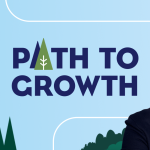What Comedy Teaches Us About Customer Relationships and Engagement



I’m a big, BIG fan of comedy. Not only does it have the ability to keep conversations light on their feet, but it also has the ability to engage people in a unique way, unmatched by any other human skill. Another important aspect of comedy: it forces you not take yourself too seriously. After all,
I’m a big, BIG fan of comedy.
Not only does it have the ability to keep conversations light on their feet, but it also has the ability to engage people in a unique way, unmatched by any other human skill. Another important aspect of comedy: it forces you not take yourself too seriously.
After all, what fun is there in being an eternal SpongeBob SeriousPants? Blech.
More importantly, if you’re in a position of leadership, according to the Psychology of Humor, this trait is related to a number of positive effects—including improved morale among workers, enhanced group cohesiveness, and positive impact on larger organizational outcomes.
So what is it exactly about this humor thing that gets us going, and how can we harness its magical powers to build better relationships with our customers? Or perhaps the bigger question is: how can we apply aspects of comedy to engage our customers in more meaningful ways?
To get to the nitty gritty of humor and its attributes, I tapped my good friend, funny gal, and CEO/founder of Comediva, Erika Cervantes. Below are a few tips Ms. Comedy herself and Ms. Attempt at Comedy (myself) have culled together which are likely to enhance that ever-evolving, tenuous thing we call “Customer Relationship Management.”
1. Be incongruent
Cognitive oriented researchers believe that “all instances of humor involve some kind of incongruity.” This means that if people are expecting one outcome, instead they get an odd, unusual, or surprising one instead.
How many email marketing campaigns or social media posts go unread or unengaged with, only to fall into the abyss of useless content? 85%? 93%? I’d say it’s likely higher. But why is this?
The short answer: most content is B-oring, with a capital B. Sometimes it makes sense to be de facto in your communication with customers—there is a time and a place for everything—but get creative, get fun, get incongruent.
For example, next time you need to send out a “tech maintenance” email to your customers, make a list of 5 obscure and silly things your customers could do to fill their time.
Exhibit A:
Hello customer,
Between the hours of 12 a.m. and 5 a.m. EST on Thursday, September 4th our site will be undergoing some upgrades.
Here’s what you could do instead of feeling sad about our downtime:
- Have a slumber party
- Engage in a partial Seinfeld Marathon
- Make midnight pancakes
- Run a half marathon wearing a glow-in-the-dark track suit
- Write a letter to your congressperson about an issue of your choice
Let us know what you did with your tech maintenance free time!
Sincerely,
Your favorite tech team
2. Be improvisational
Improvisational comedy (improv) is all about finding the funny in the moment. The basic tenets of improv—which are really just great communication skills on steroids—involve saying yes, listening, and thinking on your feet. Imagine a world where you say yes to an idea or piece of feedback from a customer and then build upon it, rather than shoot it down.
Next time your customer has an issue, think about the tenets of improv. Just say “yes” then “and”…and watch as the relationship with your customer becomes an opportunity to build trust and authentic connection.
3. Be a jokester*
To be honest, jokes (especially bad ones) can really kill any interaction. If your timing, subject matter, or delivery is off, forget about it! But placed wisely, jokes can be a great way to defuse tension, communicate feedback, and skate through awkward moments.
Remember: If you control the laughter, you control the conversation.
Assuming you are actually a good joke teller, hone those skills and practice placing jokes within the context of key customer interactions (whether face to face or within the context of digital communication).
*Just a friendly reminder because I don’t actually want you to lose customers: if you’re not funny or you’re not a good joke teller, maybe skip this one. You know who you are.
4. Be a standup guy or gal
A few years ago, my grandfather (a longtime pharmaceutical sales maven) gave me this great coffee mug that read: “Salesmanship begins when the customer says NO.”
If you’ve ever seen a standup comedy show, you know that most comedians are borderline nuts; and they almost have to be to get up onstage and welcome criticism, ridicule, and utter public humiliation.
So what can you learn from standup comics? Well, for starters, customers, like audiences, are often a tough crowd. But if you can stand up, by yourself, in front of a group of customers, pitch them on something you believe will solve their problem (and maybe even make them laugh a little), and live to tell the tale–then you’ll realize that you can do anything.
Well, there you have it…
The world—particularly the business world—would be a much better place if it took itself just a little less seriously. So, next time you’re writing that tech maintenance message to your customers, or getting frustrated with a customer interaction that just doesn’t seem to be going right, remember the many lessons we can learn from the amazing art form that is comedy.
 Rebekah Iliff is the chief strategy officer for AirPR. Previously, she was the CEO of talkTECH Communications, where she created an industry-first methodology for emerging technology companies which positioned talkTECH as one of the fastest growing, launch-only PR firms in the U.S. She is currently a columnist for Inc., and a contributing writer for Mashable, Entrepreneur, Huffington Post and PRWeek’s “The Hub.” Iliff holds a B.A. in Philosophy from Loyola University Chicago, and an M.A. in Organizational Management and Applied Community Psychology from Antioch University at Los Angeles (AULA). Follow her on Twitter: @rebekahiliff
Rebekah Iliff is the chief strategy officer for AirPR. Previously, she was the CEO of talkTECH Communications, where she created an industry-first methodology for emerging technology companies which positioned talkTECH as one of the fastest growing, launch-only PR firms in the U.S. She is currently a columnist for Inc., and a contributing writer for Mashable, Entrepreneur, Huffington Post and PRWeek’s “The Hub.” Iliff holds a B.A. in Philosophy from Loyola University Chicago, and an M.A. in Organizational Management and Applied Community Psychology from Antioch University at Los Angeles (AULA). Follow her on Twitter: @rebekahiliff
Learn more about how Salesforce can help you connect to your customers by visiting our website or downloading the free e-book below.























